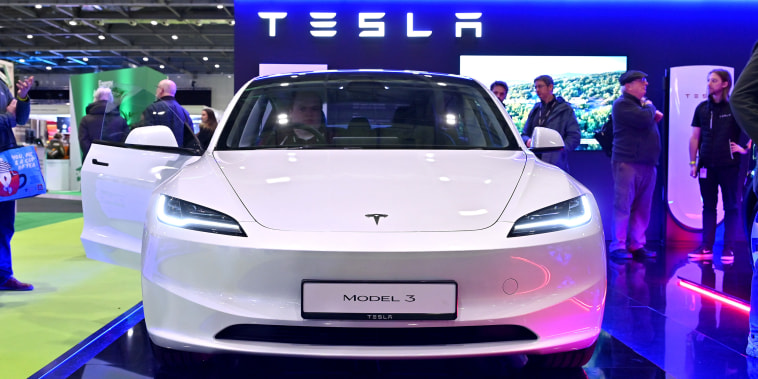The recent decline in Tesla’s delivery numbers has certainly caught the attention of investors and analysts alike. Tesla, known for its ambition in the electric vehicle sector, saw its shares fall after reporting an 8.5% drop in deliveries compared to the previous year. The news not only affected the company’s stock prices but also raised concerns about the future of the electric vehicle market and Tesla’s position within it.
One key factor that contributed to Tesla’s delivery drop is the global semiconductor shortage that has disrupted supply chains across various industries. The shortage has led to production delays and bottlenecks for many automakers, including Tesla. This shortage of crucial components has made it challenging for Tesla to meet its ambitious production targets, resulting in lower delivery numbers than expected.
Another significant aspect to consider is the increasing competition in the electric vehicle market. While Tesla has been a pioneer in the industry, other automakers are starting to catch up. Established companies like Ford, General Motors, and Volkswagen, as well as new players such as Rivian and Lucid Motors, are all ramping up their electric vehicle offerings, posing a threat to Tesla’s market dominance.
In addition to external factors, Tesla has faced internal challenges that have impacted its delivery performance. The company has been dealing with quality control issues and production challenges at its factories, leading to delays in manufacturing and delivery timelines. These operational hurdles have put a strain on Tesla’s ability to fulfill orders and meet customer demand.
Furthermore, Tesla’s pricing strategy and market positioning have also played a role in its delivery decline. The company has been focusing on premium electric vehicles, such as the Model S and Model X, which cater to a specific segment of the market. However, with the rise of more affordable electric vehicles from competitors, Tesla may need to reconsider its pricing strategy to remain competitive and attract a wider customer base.
Despite these challenges, Tesla remains a key player in the electric vehicle industry, with a loyal customer base and a strong brand reputation. The company’s ongoing investments in research and development, battery technology, and production capacity indicate its long-term commitment to innovation and growth. As Tesla continues to navigate through the evolving landscape of the electric vehicle market, it will be essential for the company to address its delivery issues, improve its production efficiency, and adapt to changing market dynamics to stay ahead of the curve.
